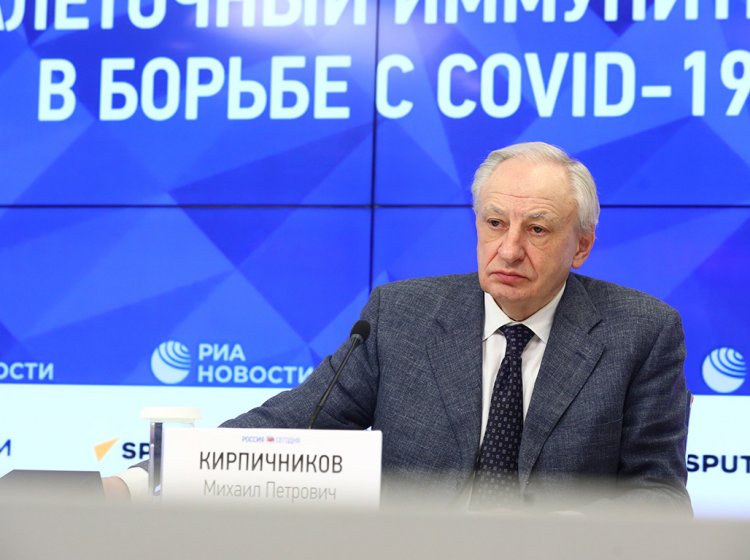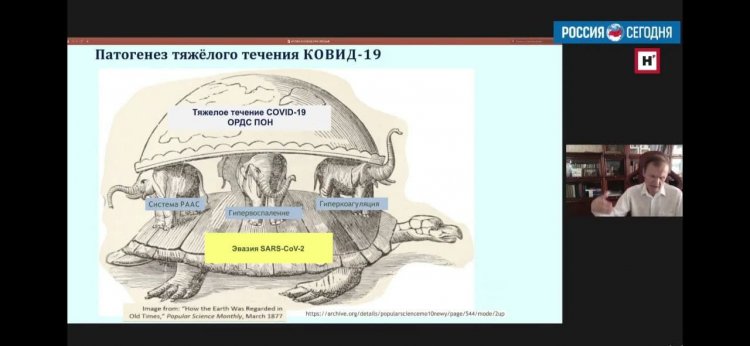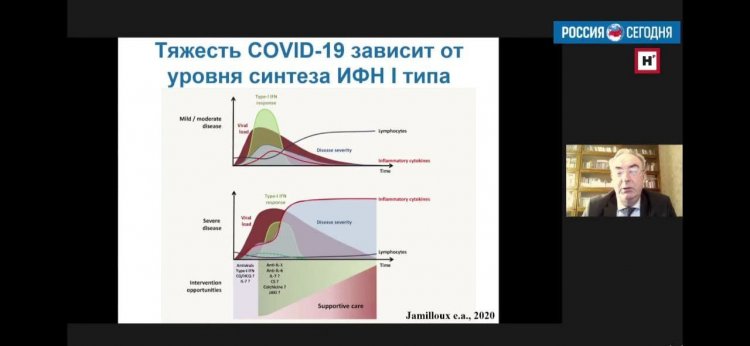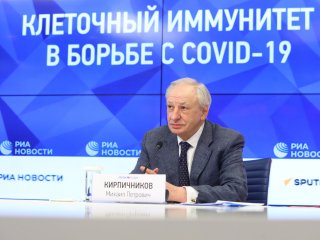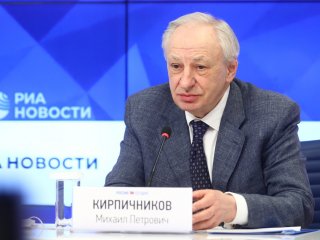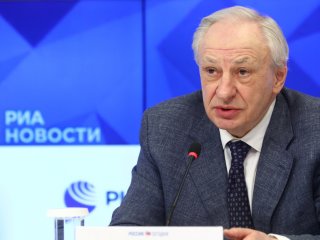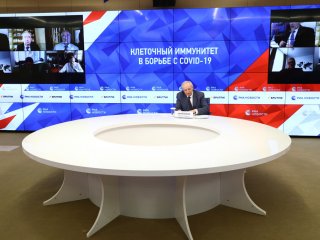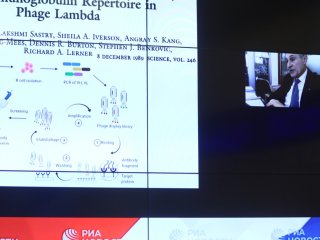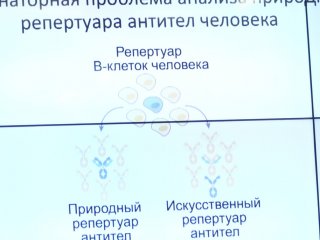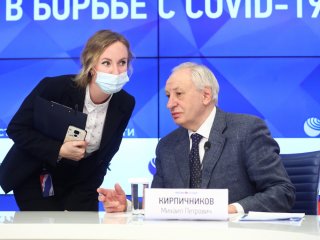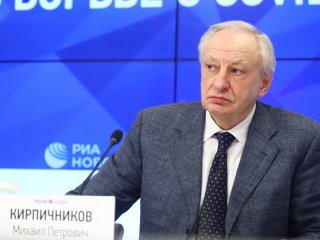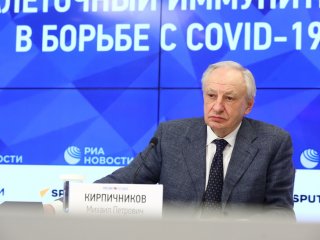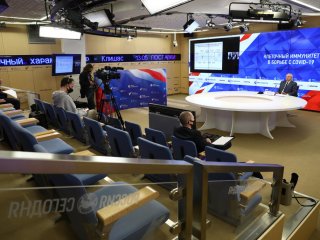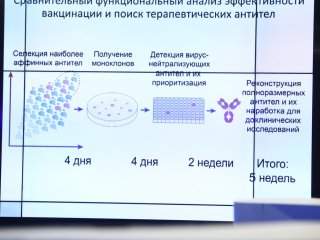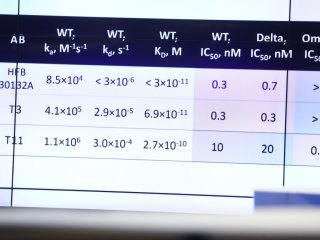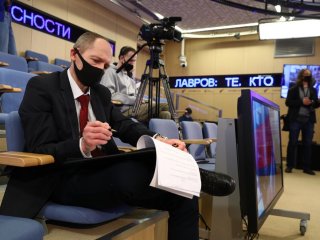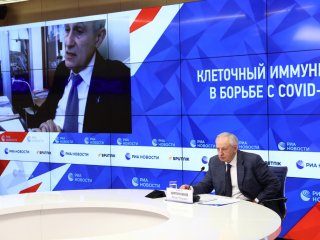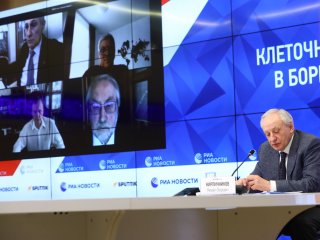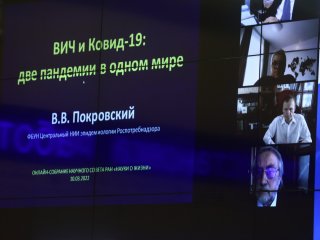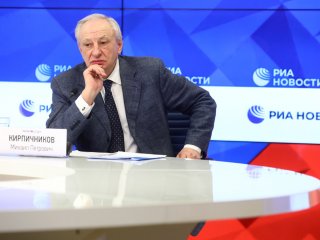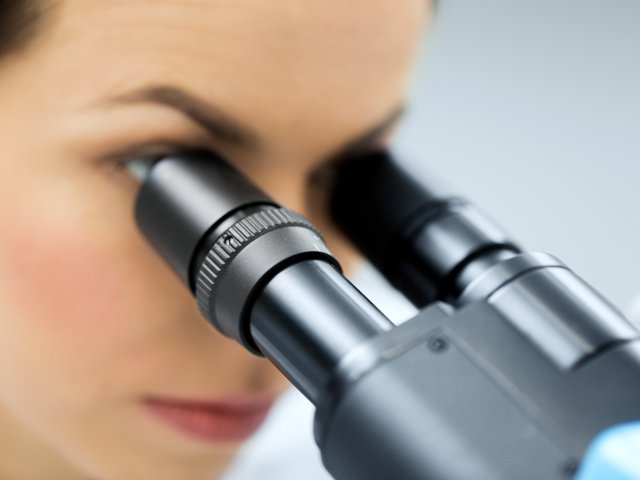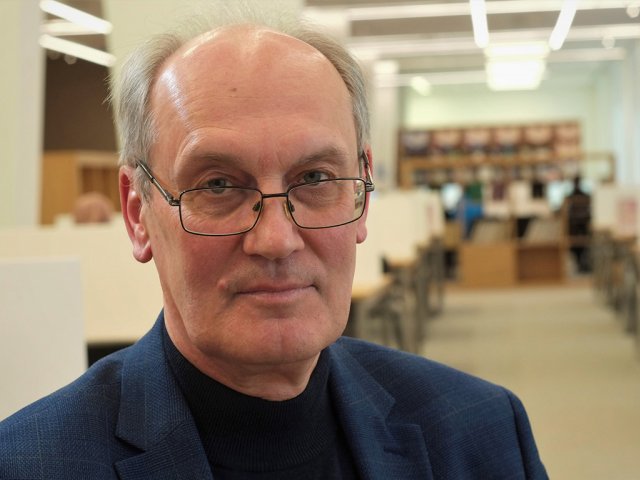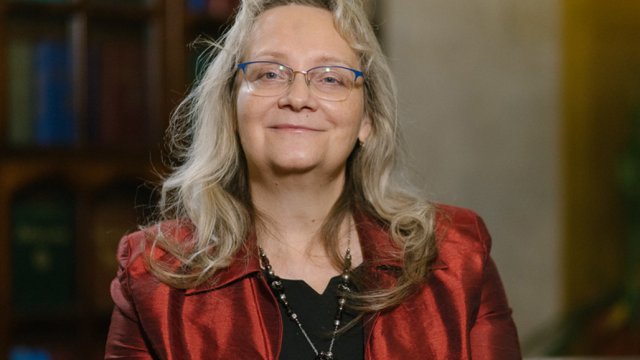On March 10, 2022, an online meeting of the “Life Sciences” Scientific Council of the Russian Academy of Sciences was held on the topic of humoral and cell-mediated immunity systems and COVID-19.
Moderator – RAS Academician, Deputy Chairman of the Council, Academician-Secretary of the Department of Biological Sciences of the Russian Academy of Sciences, Dean of the Faculty of Biology of Moscow State University Mikhail Petrovich Kirpichnikov.
The meeting was held in the International Multimedia Press Center of MIA Rossiya Segodnya with a parallel broadcast on the Scientific Russia portal.
Participants:
- Andrey Semenovich Simbirtsev, RAS Corresponding Member, Professor, Doctor of Medical Sciences, Chief Researcher of the State Research Institute of Highly Pure Biopreparations of the FMBA: Immunopathogenesis of COVID-19.
- Alexander Gabibovich Gabibov, RAS Academician, Director of the Shemyakin and Ovchinnikov Institute of Bioorganic Chemistry of the RAS. President of the Russian Society of Biochemists and Molecular Biologists. COVID 19 immunotherapy.
- Alexander Viktorovich Karaulov, RAS Academician, Head of the Department of Clinical Immunology and Allergology of I. M. Sechenov First Moscow State Medical University: Bronchial asthma and COVID-19: complex relationships.
- Sergei Arturovich Nedospasov, RAS Academician, Doctor of Biological Sciences, Professor, Head of the Department of Immunobiology and Biomedicine of Sirius University, Head of the Laboratory of Molecular Mechanisms of Immunity of the Engelhardt Institute of Molecular Biology of the RAS, Professor of Moscow State University: Comparison of the immune response to various vaccines and boosters.
- Vadim Valentinovich Pokrovsky, RAS Academician, Head of the Specialized Research Department of the Central Research Institute of Epidemiology of Rospotrebnadzor, Head of the Federal Scientific and Methodological Center for the Prevention and Control of AIDS of the CRIE of Rospotrebnadzor: HIV and COVID-19: two pandemics in one world.
- Musa Rakhimovich Khaitov, RAS Corresponding Member, Doctor of Medical Sciences, Professor, Director of the FSBI SSC Institute of Immunology of the FMBA of Russia, Head of the Department of Immunology of the Pirogov Moscow State Medical University: Innovative drugs for the prevention and treatment of COVID-19.
Live broadcast on the Scientific Russia portal and the website of MIA Rossiya Segodnya!
13:00 Mikhail Petrovich Kirpichnikov gives a welcome speech.
13:03 Academician Alexander Gabibovich Gabibov delivers his report
13:05 Alexander Gabibovich speaks about the Nobel Prize 1984 for theories concerning “the specificity in the development and control of the immune system” and the discovery of “the principle of production of monoclonal antibodies.” He believes that these studies formed the basis of 21st-century serology.
13:07 Gabibov talks about the combinatorial problem of analyzing the natural repertoire of human antibodies.
13:09 Alexander Gabibovich uses the diagrams to show how the technology of the natural repertoire of human antibodies works. He talks about the creation of an antibody that could neutralize even Delta and Omicron variants.
13:11 Gabibov reports that a comparative functional analysis of the effectiveness of vaccination and the search for therapeutic antibodies were carried out.
13:13 “We have in our hands the technology for obtaining correctly paired antibodies with appropriate screening capabilities for obtaining antibodies of the desired specificity,” concludes Gabibov.
13:15 A. G. Gabibov talks about the interaction of Russian scientists with Chinese colleagues.
13:17 M. P. Kirpichnikov gives the floor to Academician Vadim Valentinovich Pokrovsky.
13:18 Vadim Valentinovich speaks about the current pandemic and forecasts of HIV, tuberculosis, and COVID-19.
13:20 Notes that the average life expectancy in HIV patients is 37-40 years, COVID-19 67-69 years, tuberculosis 47-50 years.
13:22 Pokrovsky explains how HIV and tuberculosis “cooperate.”
13:24 Mentions the clinical and epidemiological characteristics of HIV and COVID-19.
13:26 Vadim Valentinovich talks about the immunopathogenesis of HIV and SARS-COVID-19 and what are the main anti-epidemic measures.
13:28 According to Pokrovsky, the concern of the population, the inadequate reaction of society, and the emergence and spread of false ideas, speculation, discrimination are common features of the HIV and SARS-COVID-19 pandemics.
13:30 Vadim Valentinovich speaks about the popular hypotheses of the link between HIV and SARS-COVID-19.
13:32 Pokrovsky reports that, according to research, a higher mortality rate was detected in SARS-COVID-19-infected people who live with HIV and do not receive treatment.
13:34 V. V. Pokrovsky says that according to international estimates, the number of referrals for HIV diagnosis and treatment has decreased.
13:36 Pokrovsky talks about the impact of SARS-COVID-19 on the HIV situation in Russia. Scientists observe economic damage and problems with receiving medical care.
13:38 Academician Sergei Arturovich Nedospasov delivers a report on experimental work, elaborates on the S-key protein of the SARS-COVID-19 virus.
13:40 Talks about three Russian and three foreign vaccines and the results of studies of people who received these vaccines.
13:42 Nedospasov defines the quality of antibodies by their neutralizing activity in the pseudovirus system.
13:44 According to Nedospasov, all vaccines give a high level of antibodies.
13:46 Marks the question of revaccination: when to do it, what is the result.
13:48 Sergey Arturovich reports that boosters are less effective against Delta than against the Wuhan virus.
13:50 Emphasizes that vaccination gives not only an antibody but also a T-cell response.
13:52 Adds that revaccination increases the level of virus-neutralizing antibodies that are also partially effective against Delta.
13:54 Nedospasov answers the question about cell-mediated immunity, which most people have.
13:55 The floor is given to Academician Alexander Viktorovich Karaulov.
13:56 Karaulov compares the pathogenesis of the severe course of COVID-19 with a turtle on which elephants stand and support the earth.
Screenshot from the live broadcast
13:58 Speaks about the clinical manifestations and target organs of COVID-19.
14:00 Explains what bronchial asthma is in a pandemic: a risk factor and a protection factor.
14:02 According to Karaulov, possible reasons why epidemiological data from some countries suggest a lower prevalence of bronchial asthma in COVID-19 patients are constant medical monitoring, genetic features, anti-inflammatory drugs, and inaccuracy of documentation.
14:04 Demonstrates how endotypes of bronchial asthma affect the progression of COVID-19.
14:06 “Many patients with non-atopic bronchial asthma suffer from other concomitant diseases. This is against the background of chronic inflammation, there is a previous restructuring in the mucosa associated with the bronchi.”
14:08 Speaks about the role of the distribution of BALT and iBALT as a pathogenesis factor in comorbid pathologies of the respiratory organs.
14:10 Corresponding Member of the Russian Academy of Sciences Andrey Simbirtsev delivers his report.
14:12 Andrey Semenovich explains that SARS-CoV-2 is recognized by innate immunity and triggers type I and II interferons.
14:14 Says that type I interferons have an immunomodulatory effect: activation of macrophages, increased presentation of viral antigens to cytotoxic T-lymphocytes, activation of functional activity of T-killers, and activation of functional activity of NK cells.
14:16 Simbirtsev shows in the figure how much the severity of COVID-19 depends on the level of synthesis of type I interferons.
Screenshot from the live broadcast
14:18 “Damage in the genes of the signaling pathways of interferon synthesis is accompanied by a high viral load and a severe course of COVID-19.”
14:20 According to Simbirtsev, SARS-COVID-19 infection leads to suppression of interferon synthesis and the development of an unbalanced immune response with a hyperinflammatory reaction.
14:22 Simbirtsev says that a molecule has been developed that can be used to assess the cellular and humoral immunity of patients.
14:24 Simbirtsev emphasizes the prospects of immunotherapy for coronavirus infection.
14:26 RAS Corresponding Member Musa Rakhimovich Khaitov delivers his report.
14:27 Khaitov elaborates on a new drug developed at the FSBI SSC Institute of Immunology, explains what the mechanism of RNA interference is.
14:28 “With the right selection of small interfering RNAs, if they are directed to those cells where they will be most effective, it is possible to block the expression of almost any gene: both viral and human.”
14:30 Speaks about MIR 19, an etiotropic drug for antiviral therapy of COVID-19 whose preclinical studies have already been completed.
14:32 According to Khaitov, the drug can destroy the vital gene of the virus responsible for reproduction.
14:34 Khaitov reports that the drug has already been tested on volunteers. Studies have shown that the drug is safe, effective, and gives positive treatment results in moderate patients. A clinical trial of milder forms of COVID-19 is currently underway.
14:36 Khaitov presents Convasel: a second-generation vaccine against SARS-CoV-2.
14:38 Says that a unique scientific and technical platform for the development of drugs has been created on the basis of the FSBI SSC Institute of Immunology.
14:40 Khaitov answers the question about the features of humoral and cell-mediated immunity.
14:42 Mikhail Petrovich Kirpichnikov adjourns the meeting.
The broadcast is over.
